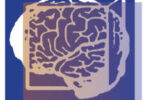by Yana A. St. Clair, Esq.
AI will soon be all around us, so we need to get accustomed to its ways…

It seems you can’t turnaround these days without running into ChatGPT. This Artificial Intelligence chatbot is incredibly useful in any domain. It’s basically a much more detailed version of ask Siri, and within seconds you have a beautiful, eloquent response to any question in the world. This AI aide is any researcher’s dream, it’s like having a dedicated team of assistants at your fingertips.
Since ChatGPT is able to produce entire written works, it is ideal for students needing last minute help with a paper.
But how is that not cheating? You didn’t write it, ChatGPT did. This was the concern of a Texas A&M professor who flunked his students, alleging they had all used the chatbot to generate their final papers, according to a May 17th Rolling Stone article.
Evidently the method he had used to determine that his students were cheating, was to ask ChatGPT itself if it had written the individual essays. To every single inquiry the chatbot responded that it had.
When the students were able to provide evidence of the progress of their work, more issues with ChatGPT came into question, for example that it claimed to have written chapters of Crime and Punishment.
So, we have two options here:
- ChatGPT either is not very proficient at detecting text and doing its job (at least for now,) or
- ChatGPT is lying
And now if we accept the second alternative is even an option, that means the chatbot can think for itself and that’s a troubling topic for another time.
But back to plagiarism. Is that what this is?
Plagiarism is defined as the practice of taking someone else’s work or ideas and passing them off as one’s own.
In a Wired article on the subject, the topic of how universities are struggling with this issue is discussed. A common viewpoint held is that since plagiarism is the taking of someone’s work or ideas, and not something’s, there is no violation as there isn’t a someone that the work is being taken from.
This could take us down the existential question of whether AI is a something, with feeling, or at least an understanding of a desire for self-preservation, but that’s for another time.
It appears in academia throughout the world there’s a divide on how the use of the chatbot is viewed. Many students it seems view it simply as a research tool, no different than typing in and researching on the internet by yourself. Some districts throughout the US however, have banned any use of chatbots for exam purposes all together.
Regardless of whether ChatGPT falls within the specific definition of plagiarism, in my personal opinion its use is clearly cheating and academically unethical.
Turning in an essay you didn’t complete, even if written by a chatbot, is no different than paying your dorm mate who’s trying to make some extra money, to write your paper for you.
It’s undeniable that times are changing, and AI will increasingly become an unescapable part of our lives, and it’s my personal prediction that we’re not far from the time when we will have to address these computerized rascals by the pronouns of their choice…
But if you’re still wondering whether you should use ChatgGPT in your next project, and whether you believe the information it provides is even reliable, well that’s entirely up to you…
Disclosure: Please note that none of the information contained within the above column is to be considered legal advice.
Biography

Yana is an American attorney licensed to practice in all State and Federal courts of California. Yana holds a Bachelor of Arts Degree in Political Science specializing in International Relations from UCLA, the Degree of Juris Doctor from Loyola Law School, and a Master of Business Administration Degree from Ashford University. Since the beginning of her undergraduate studies, Yana has been involved in various aspects of the field of Electrical Engineering, where she employs her business and legal knowledge to consulting and advising businesses and individuals on relevant topics of concern. Yana also serves as Editor for PACWorld magazine, having been with the publication since its inception. As an attorney, Yana specializes in criminal defense, where she devotes her talents and expertise to fighting for her clients’ rights and freedom.








